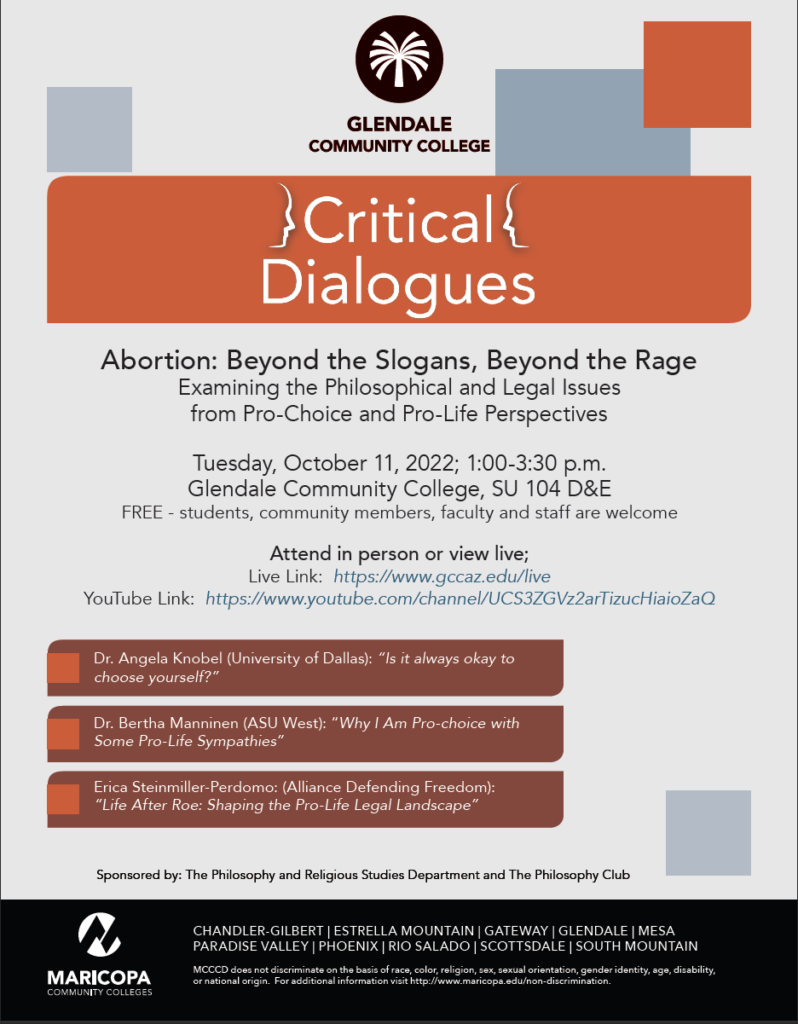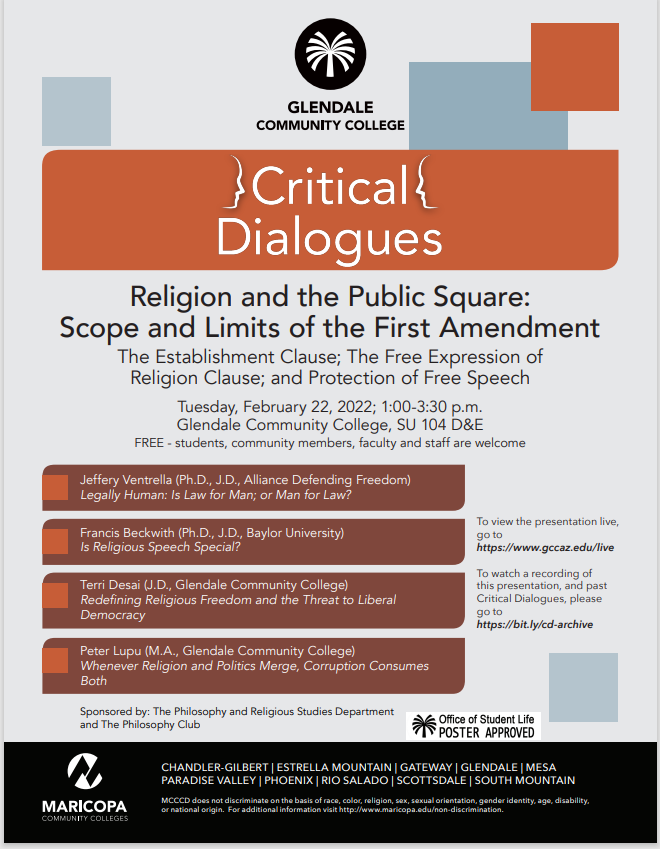Over the past few years in writing for the 6 x 6 writing project I have often written on the themes of free speech and the need for critical, civil, and constructive dialogue—see “Celebrating the Value of Free Speech” and “The Other DEI… Diversity in Examining Ideas.” This focus has been reinforced recently by the Faculty Senate’s adoption of a GCC-version of the “Chicago Principles.” Here are some relevant sections of the GCC statement:
Of course, the ideas of different members of the GCC community will often and quite naturally conflict. But it is not the proper role of GCC to attempt to shield individuals from ideas and opinions they find unwelcome, disagreeable, or even deeply offensive. Although GCC greatly values civility, and although all members of the GCC community share in the responsibility for maintaining a climate of mutual respect, concerns about civility and mutual respect can never be used as a justification for closing off discussion of ideas, however offensive or disagreeable those ideas may be to some members of our community.
In a word, GCC’s fundamental commitment is to the principle that debate or deliberation may not be suppressed because the ideas put forth are thought by some or even by most members of the GCC community to be offensive, unwise, immoral, or wrong-headed. It is for the individual members of the GCC community, not for GCC as an institution, to make those judgments for themselves, and to act on those judgments not by seeking to suppress speech, but by openly and vigorously contesting the ideas that they oppose. Indeed, fostering the ability of members of the GCC community to engage in such debate and deliberation in an effective and responsible manner is an essential part of GCC’s educational mission.
The GCC Philosophy and Religious Studies Department continues to manifest this commitment to the free expression of ideas in a rational and civil manner. By its sponsorship of its annual panel discussions—“God & Truth” and “Critical Dialogues”—our campus and community have the opportunity to witness and participate in the ongoing interaction of ideas.
Free Speech on the Campus
Last October our “Critical Dialogues” panel discussion was devoted to one of the most enduring and controversial topics in our culture—Abortion. And, again, we witnessed a rational, civil interchange which should be envy of any institution of higher learning. We chose the title, “Abortion: Beyond the Slogans, Beyond the Rage,” which communicated our desire for a deeper analysis of the debate in a context devoid of acrimony—you can watch the event and see if we accomplished our goals!

In the Classroom…
n my introduction to philosophy classes, I wanted to bring this quest for rational and civil dialogue to my students. Early in the semester we go over logic and logical fallacies. Then every week we review a particular logical fallacy. This served as a good foundation from which to work as we approached the topic of abortion after the Critical Dialogues panel discussion. So often the debate on this topic is dominated by slogans and fallacious reasons and helping students see through the irrational slogans would serve them well in their logical development. Over the past fifty years the philosophical literature is replete with sophisticated defenses of both the pro-choice and pro-life perspectives. I had my students read a classic pro-choice piece—Judith Jarvis Thomson’s “A Defense of Abortion” and the pro-life philosopher, Francis Beckwith’s response, “Personal Bodily Rights, Abortion, and Unplugging the Violinist.” Then, in class, I went over the philosophical terrain of the arguments and where the key philosophical issues came to expression. I utilized Dr. Angela Knobel’s outline of the various arguments and this allowed for a rich discussion on the topic. Later, in their philosophy journals, several students mentioned that, although they had not necessarily changed their minds on the topic of abortion, they did have a greater appreciation for the other side of the debate. Serious interaction on a controversial cultural topic with a renewed appreciation for other points of view—that’s educational success!

